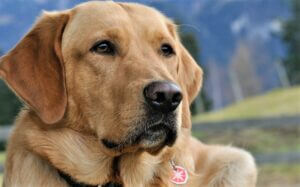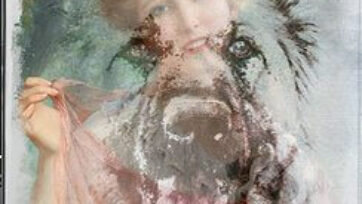
WHY THESE FOODS ARE DANGEROUS TO DOGS
To recap, kidney disease in dogs can either be acute or chronic. Acute kidney disease occurs all of a sudden whereas chronic develops over a long time and is common in older dogs. Acute kidney disease can be reversed whereas chronic kidney disease can’t.
Dogs with kidney disease when fed the right diet survive twice as long as those that are not. All dogs are different and require their own special diet depending on how severe the disease is. This is good for you because with the right food you can not only manage your dog’s kidney failure but their overall health in general. These are foods with less potassium, calcium, phosphorous, and sodium with increased high-quality proteins and fats. Now to the foods to avoid.
CHOCOLATES
There are high levels of caffeine in chocolates and when your dog eats chocolate , the caffeine in it stimulates their blood flow which increases their blood pressure which leads to a strain on the kidneys. Also, 100 grams of chocolate contains 15% of potassium and 44% calcium which lead to higher than recommended levels of both potassium and calcium in your dog’s blood.
LEGUMES
Beans and lentils have high levels of potassium and since your dog’s kidneys are damaged, a high intake of potassium will cause the mineral to build up in your dog’s blood that will eventually lead to heart damage. Some low potassium alternatives to consider are cabbage and boiled cauliflower.
EGG YOLK
Egg yolk contains high levels of phosphorous and your dog’s kidneys will not be able to filter the blood once taken in large amounts. Phosphorus with high amounts in the blood will lead to weakened bones since phosphorus pulls calcium from the bones.
HAM
Ham contains high levels of sodium which can lead to high blood pressure which will cause more damage to your dog’s kidneys.
You should know that when your dog has kidney disease, his chances of getting pancreatitis is also increased. A high intake of fatty foods such as bacon may be fatal in the long run. This doesn’t mean that you can’t give your dog foods with fats, you should because they are important, but you should reduce the intake.
DAIRY PRODUCTS
Milk contains calcium, potassium and phosphorus among other nutrients. The kidneys are responsible for stabilizing the levels of minerals in the blood, and since their effectiveness has been impaired, increased consumption of milk may lead to the weakening of your dog’s bones.
Dairy products are also rich in calcium and protein, which increases protein wastes in the body and overworks the kidneys.
FISH
When a dog eats fresh fish which is high in phosphorus it can lead to death if the dog has a damaged liver. The same applies to chicken and turkey. Consider using foods with low levels of phosphorus like minced beef, port, or lamb.
AVOCADO
Avocados have high levels of potassium which by now you know need to be at low levels.
ALCOHOL
Alcohol poising is fatal, and it leads to further damage to your dog’s kidney over time. Look at the labels because alcohol can be present in some kinds of toothpaste and other dental products for pets.
ORANGES
Oranges and orange juice are also high in potassium, citrus is also harmful to kidneys and will do further damage to your dog’s kidney’s.
GRAPES AND RAISINS
The eating of grapes by dogs is known to cause acute kidney failure. Although what causes the reaction is not yet known, grapes have been reported to be toxic to dogs. This is scary, in a study from April 2003 to April 2004, using a sample of 140 dogs, 50 were reported to show symptoms of kidney failure while 7 died.
Not all dogs react the same way after the ingestion of grapes and raisins, but if your do already suffers from kidney failure, exposing them to further damage can be fatal. It doesn’t matter if they are seeded or non-seeded, homegrown or bought from a store, don’t let your dog eat these fruits. Also it might be added that 100 grams of raisins contain 21% of potassium which is relatively high.
NUTMEG
Just like raisins and grapes, the toxic substance in nutmeg remains unknown, but it has been confirmed to be fatal to dogs.
WALNUTS
The ingestion of wood, husks, nuts, and shells of walnuts is toxic to dogs. The toxin causes damage to your dog’s kidneys which is fatal if they’re already suffering from renal disease.
WILD MUSHROOMS
Dogs can be attracted to wild mushrooms because they smell like fish. Some mushrooms may not be hazardous to your dog, but keep an eye on him and make sure he doesn’t even get near mushrooms to be on the safe side.
COD LIVER OIL
Cod liver oil is inflammatory and not recommended if you dog suffers from kidney disease. Choose instead fish oil or coconut oil.
XYLITOL
Xylitol is often used as a substitute of sugar and is hazardous to dogs even when taken in small amounts. It causes low blood pressure which limits the blood flow to your dog’s kidneys causing further damage.
SALT
Salt is prohibited in a dog’s diet whether they have renal failure or not. Salt and foods that are high in sodium lead to high blood pressure in your dog leading to further damage to their liver.
All of this is a lot to remember but the reward of your dog having a longer and healthier life by being constantly aware is more than worth the effort.
MORE FACTS ABOUT FOODS DOGS NEED TO AVOID
What is the ingredient in chocolate that is so bad, Theobromine won’t harm us humans but it’s the toxic part of chocolate. While it’s found in all kinds of chocolate, it is found most in dark chocolate and baking chocolate. It can cause a dog to vomit, have diarrhea, and become overly thirsty, but on the more extreme side it can cause abnormal heart rhythms, seizures, tremors, or even death.
Meat trimmings can also cause pancreatitis in dogs to go along with ham and bacon. These meats are often high in salt content causing dogs to have upset stomachs. In extreme cases, can cause dogs to drink too much water, leading to bloat, which can also be fatal. A condition called sodium ion poisoning is the result of high salt content which can lead to high body temperature in dogs.
GARLIC AND ONIONS
The ingredients in these two are very bad for dogs. They can actually destroy a dog’s red blood cells, leading to anemia, it consumed in high quantities. Be very careful with garlic and onions because small doses don’t seem to cause much harm, but large doses or regular small doses can lead to poisoning. The symptoms might include weakness, vomiting, breathlessness, and a loss of interest in food.
DAIRY PRODUCTS
Dogs aren’t really built to process cow milk products. They lack the enzyme to break down milk sugar. Some dogs are more able to handle dairy than others, many dogs are lactose intolerant. Dairy can cause dogs to vomit, have diarrhea, or develop gastrointestinal diseases.
RAW MEAT, FISH, AND EGGS
This is loaded with a lot of controversy, as many vets are seeing health benefits from their patients switching to raw meat diets, these include healthier skin and coats, cleaner teeth, and easier digestion. Some vets recommend cooking raw food to kill off bacteria and parasites that can be harmful to dogs. The majority of vets and the FDA still discourage feeding raw meat to dogs, because salmonella and e. coli infections do happen in canines. The majority of these infections happen to dogs whose immune systems are already compromised. This may be hard to tell if your dog’s immune system is completely healthy. Raw eggs have enzymes that can cause skin conditions and raw fish can hide parasites that cause fatal diseases. There is a lot of risk involved here but the risks can be reduced through freezing and proper preparation, learning how to properly handle raw food before giving it to your dog can also be beneficial.
CANDY, GUM, PEANUT BUTTER, AND BAKED GOODS
What’s bad about sweet things is an ingredient called xylitol. It causes an insulin surge through your dog’s body that can lead to a drop in blood sugar and liver failure. Symptoms include lethargy, vomiting, loss of coordination, seizures, and eventually even death. Some peanut butters don’t have xylitol as an ingredient, so always check the labels.
AVOCADO
What’s bad about avocado is that it contains a substance called persin, which is found in their leaves, seeds, bark, and fruit. Persin can be toxic in high doses. Dogs are fairly resistant to persin, and it would take a lot of avocados for the persin to cause harm. Also once avocados are ripe, the persin levels drop, so why are avocados so bad?
The real problems come from the seeds, stems, and pits, all of which are difficult to digest and can cause choking or gastrointestinal blockages, which can be fatal. If you have an avocado tree make sure your dog doesn’t get anywhere near it.
SOME OTHER BAD FOODS
There are some other foods to avoid too! These are not good, uncooked yeast dough, seeds and pits from fruit, raw potato, cooked bones, apple cores, alcohol, caffeine, and human medicine.
THE FOLLOWING FOODS ARE FINE FOR DOGS
- bananas
- apple slices
- strawberries
- blueberries
- watermelon
- cantaloupe
- cranberries
- mangoes
- peaches
- pears
- pineapples
- raspberries
Always remember to remove the seeds from these fruits or in the case of watermelon it should be a seedless melon as most fruit seeds contain trace amounts of arsenic which is poisonous.
VEGETABLES
- broccoli
- brussels sprouts
- carrots
- cucumber
- green beans
- peas
- potatoes ( only if cooked )
- spinach
- sweet potatoes
Vegetables make great low-calorie snacks and good training tools. In fact, you can give your dog slices of carrots as a treat and a healthier alternative to other training treats. Don’t use canned and pickled vegetables as they contain too much salt.
WHITE RICE
Cooked white rice is frequently referred to as a potential meal for a dog with an upset stomach. Generally boiled white chicken and white rice are used to help firm up stools as well as nourish a dog that is having trouble getting any nutrition from food as a result of illness.
